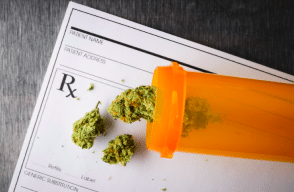Despite its reputation as a recreational drug, marijuana has been used for medicinal purposes for decades. Currently, the use of medical marijuana is allowed in 33 states of America.
The Basics Of Marijuana
It’s pretty remarkable how marijuana or cannabis has gradually disassociated itself from the hazardous drug category throughout the years. While cannabis isn’t entirely categorized as a legal substance, there appears to be a worldwide change in opinion as countries across the globe liberalize their drug policies.
Marijuana’s medicinal qualities have garnered widespread notice and approval in recent years. In the United States, an increasing number of states have authorized medicinal marijuana for the treatment of pain and diseases. Also, many websites, like SanctuaryWellnessInstitute.com and others, promote the use for certain conditions and help in easy access to medical marijuana.
Whether you’re trying cannabis for the first time or exploring its health benefits, here are basic things you need to know:
- What Is Medical Marijuana?
Medical marijuana is made from the Cannabis sativa plant byproducts that are utilized to alleviate severe and chronic illnesses. These are almost identical to those consumed for recreational use, but they are controlled and restricted to only medicinal usage.
Cannabis is made up of over 100 distinct compounds known as cannabinoids. Each has a specific impact on the human body. The primary compounds utilized for medicinal purposes are tetrahydrocannabinol (THC) and cannabidiol (CBD). Though these two are mostly related to the ‘high’ that cannabis users experience after smoking it, they may also be beneficial to the body.
Medical marijuana may be taken in a number of ways. You may inhale vaporized sprays. You may also smoke the leaves and consume pills or syrups. Each kind has a different dosage and possible effects.
- How Does It Affect The Body?
Marijuana’s compounds tend to take effect when they bind to your brain receptors. Using marijuana may have the same effect as consuming alcoholic beverages or other illegal substances since it targets the pleasure region of your brain.
Medical marijuana may increase the release of dopamine in the brain. Dopamine is a brain chemical responsible for your mood, memory, hunger, and so on. In other words, when dopamine levels are high, most of the internal processes in the body are boosted.
However, different strains of marijuana have varying concentrations of cannabinoids, making it difficult to compare its effects on the body. Additionally, the effects may vary based on whether the substance is smoked or ingested.
- What Are The Uses Of Medical Marijuana?
In the United States, medicinal marijuana is most often used to treat pain. It seems to be particularly effective in relieving the pain associated with multiple sclerosis and nerve discomfort.
Like other muscle relaxants, medical marijuana may help with Parkinson’s disease patients’ tremors. Additionally, medical cannabis is said to assist in the treatment of the following diseases:
- AIDS
- Anorexia
- Arthritis
- Cancer
- Chronic pain
- Glaucoma
- Migraine
More study is needed to determine if medicinal marijuana can help individuals with other diseases. Nevertheless, it’s prescribed for a wide range of ailments. This list isn’t meant to be all-inclusive but a quick overview of the many ailments that medical marijuana may help alleviate.
Medical marijuana is not intended to treat or cure illnesses. Taking it will not alter the implications of a particular illness. Claims of efficacy for herbal treatments should be examined cautiously and handled with care, just like any other remedies.
- Are There Risks Involved?
Addiction is one of the risks associated with marijuana use. If you get addicted to medical marijuana, you may experience withdrawal symptoms once you quit using it. Withdrawal symptoms may include:
- Irritability
- Insomnia
- Mood swings
- Decreased appetite
- Physical discomfort
- Nausea
- Restlessness
If you smoke marijuana, you may run the risk of developing respiratory issues such as persistent cough and bronchitis. If you take it while pregnant, it may have an adverse effect on the growth of your unborn child. The effects of medical marijuana may vary according to the user, the strength of the marijuana, and the manner in which it is consumed.
- How Do I Get Medical Marijuana?
Medical marijuana is only available with a doctor’s prescription in places where it is allowed. You must specify whether you need it to address a medical problem or alleviate the effects of another medication.
You’ll also be required to have a valid medical marijuana card before you can purchase any medical marijuana product. The process for obtaining a medicinal marijuana card differs from state to state. To get it, you’ll need a prescription from a qualified health care provider.
Medical marijuana dispensaries offer a wide range of products in jurisdictions where it is allowed. Medical marijuana comes in a variety of forms, including edibles like chocolates and brownies, as well as tinctures, extracts, and the actual plant itself.
- What Are The Qualifying Medical Conditions For Marijuana Use?
There are only a few conditions under which you may obtain medical marijuana. Each state has its own list of medical conditions that marijuana may be used for. Among the most prevalent are the following:
- Cancer
- HIV/AIDS
- Seizures and epilepsy
- Glaucoma
- Severe chronic pain
- Severe nausea
- Extreme weight loss and weakness (wasting syndrome)
- Severe muscle spasms
- Multiple sclerosis
Doctors are prohibited from prescribing medicinal marijuana to patients under the age of 18. Other individuals who should refrain from medical marijuana are the following:
- Individuals suffering from heart illness
- Pregnant women
- Individuals with a history of psychosis
- How Is Medical Marijuana Administered?
There are many ways to take medical cannabis, including inhalation, oral ingestion, topicals, and suppositories. Your physician may decide the quantity and frequency with which you’ll take medical marijuana. Additionally, consulting a trained cannabis doctor may be beneficial since they can assist you in determining the best method and cannabinoid combination for your needs.
Conclusion
Medical marijuana isn’t a cure by itself, but it may be administered to alleviate the symptoms of illnesses or the negative effects of associated therapies. Consult your medical doctor if you believe marijuana may aid in the treatment of your illness. Your doctor may make a referral or certify you for medical marijuana treatment.


















